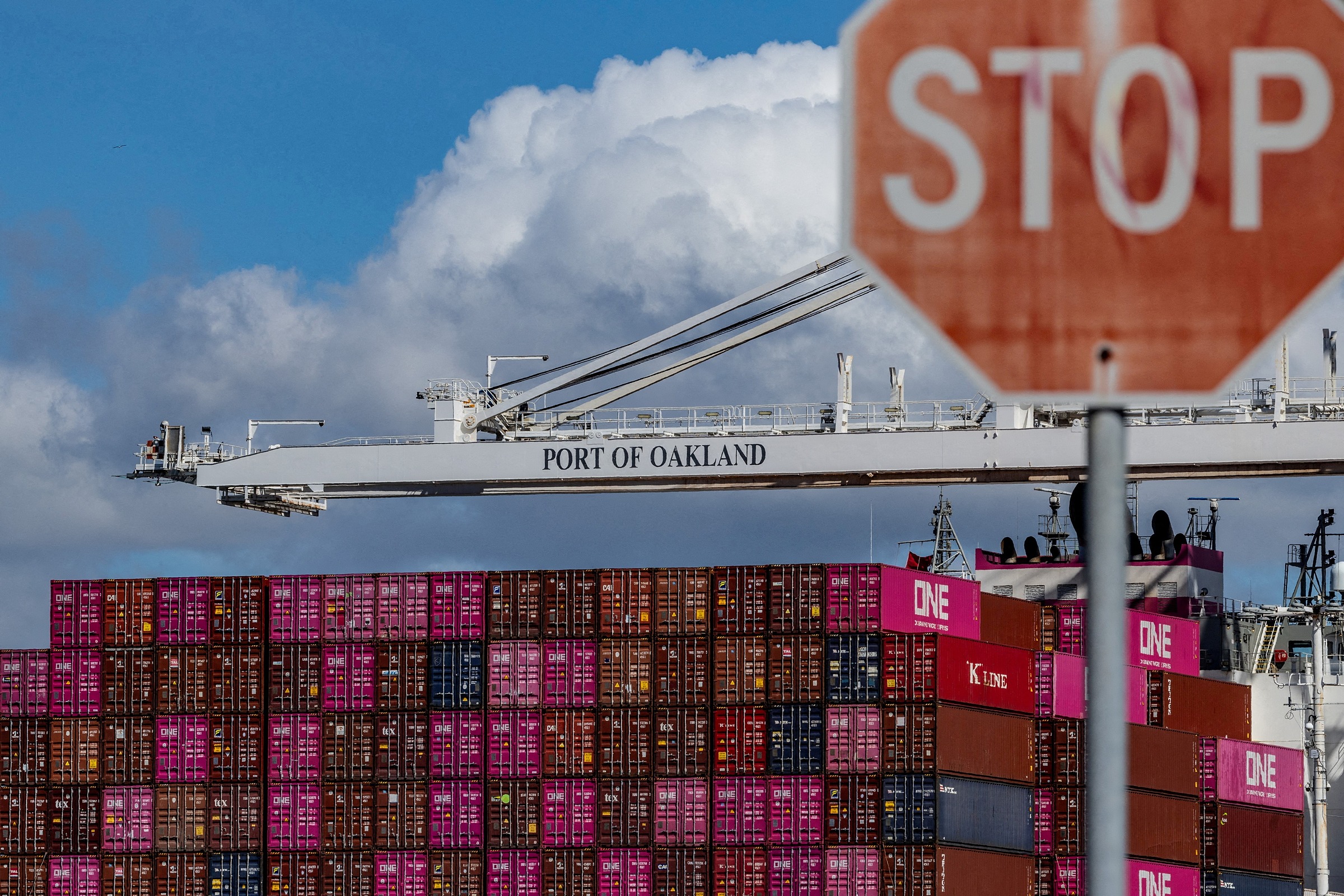The US Commerce Department reported on 3/7 that the country's total exports (goods and services) fell 4% in May from the previous month to 279 billion USD. Conversely, total imports edged down 0.1% to 350.5 billion USD. This caused the US trade deficit to increase by 18.7% to 71.5 billion USD. In April, this figure had dropped sharply to 60.3 billion USD, due to a wave of early imports to avoid tariffs.
For goods alone, exports fell to 180.2 billion USD, due to declines in industrial materials and supplies. Imports of goods decreased to 277.7 billion USD, causing the deficit to increase by 13% to 97.5 billion USD.
Imports and exports of services also decreased, to 98.8 billion USD and 72.8 billion USD respectively, mainly due to declines in travel and transportation services.
Washing also reduced its purchases of consumer goods in May, mostly textiles, household items, and sporting goods.
 |
Container ship at the Port of Oakland (California). Photo: Reuters |
Container ship at the Port of Oakland (California). Photo: Reuters
In the first quarter, the trade deficit reduced US GDP by 0.5%. The US economy is expected to return to growth in the second quarter, although the contribution from trade may be somewhat impacted by weak consumption.
Earlier this year, President Donald Trump's unprecedented import tax policy forced many businesses and households to purchase goods in advance to avoid tariffs. On 2/4, the US president announced retaliatory tariffs on all trading partners, ranging from 10% to 50%. A week later, he announced a postponement of the higher tariffs, temporarily setting them at 10% for 90 days, to give countries time to negotiate with the US.
However, experts believe the trend of early imports may not have ended. Some businesses are still rushing to place orders because it is unclear what will happen after the tariff postponement period.
So far, the US has reached agreements with the UK and Vietnam, and has agreed to temporarily reduce tariffs with China. An agreement with India, which was highly anticipated, has not yet been finalized. European negotiators said on 4/7 that they had not made a breakthrough in discussions with the Trump administration. Negotiations with Japan are also at an impasse.
Ha Thu (Reuters)












